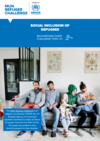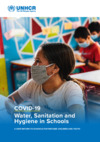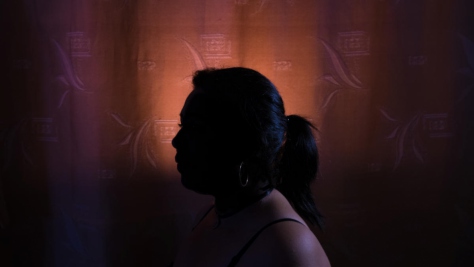Ethiopia: Somali refugees to be relocated away from border
This is a summary of what was said by UNHCR spokesperson Jennifer Pagonis – to whom quoted text may be attributed – at today's press briefing at the Palais des Nations in Geneva.
In Ethiopia today (Friday), UNHCR teams are expected to start relocating a group of 500 newly-recognized Somali refugees who fled from renewed conflict in strife-torn south and central Somalia over the last year. They have been staying around the Kebribeyah area, near the Somali border in eastern Ethiopia and are being relocated to a re-opened UNHCR camp at Teferi Ber.
The refugees are part of a group of 4,000 Somali refugees who have recently been granted refugee status by UNHCR and the government's Authority for Refugees and Returnees Affairs (ARRA). An estimated 7,000 additional Somalis who also claim to have fled fighting and insecurity in Somalia, are waiting to be screened at other sites in eastern Ethiopia.
The new camp site at Teferi Ber, some 120 km north of Kebribeyah, was formerly a UNHCR camp which in the 1990s hosted some 49,000 mainly Somalis refugees who had fled fighting in their country. The camp was officially closed in 2001 after all the refugees returned, mainly to the self -declared republic of Somaliland.
After arriving at Teferi Ber, the refugees will spend three days in a reception centre where they will be allocated plots of land to construct homes and given building materials. They will also be given food as well as tarpaulins, blankets, sleeping mats, kitchen sets, jerry cans, kerosene stoves, and soap. The ARRA has established a temporary health centre until permanent structures can be built.
The Somali Region of Ethiopia already hosts more than 16,500 refugees. With the new arrivals, the total is 20,300. At the peak of the Somali refugee crisis in the early 90s, the region hosted 628,000 refugees in eight camps. The overwhelming majority went home between 1997 and 2005, and all of the camps were closed except a camp at Kebribeyah.
Related news and stories
Thousands of newly arrived Somali refugees in Ethiopia relocated to new settlement
Samira's Story
Drought brings life-threatening food shortages for refugees in Ethiopia
100,000 new Somali refugees arrive in Ethiopia in the past month, UN and partners are calling for urgent funding
UNHCR teams and partners rush assistance to some 100,000 newly arrived Somali refugees in hard-to-reach area of Ethiopia
As the Horn of Africa drought enters a sixth failed rainy season, UNHCR calls for urgent assistance
-

The Role of Cash Assistance in Financing Access to Health Care in Refugee Settings and other Persons of Concern to UNHCR
27 Nov 2020 This document provides guidance and key considerations on how cash assistance – along with in-kind and services - can be used to meet health needs in refugee settings and for other people of concern to UNHCR. It aims to facilitate discussions in UNHCR operations around the use of cash assistance to achieve health outcomes throughout the operations management cycle, from assessment and design to implementation and monitoring. -

Empowering refugees through technology
27 Nov 2020 -

Refugees and the impact of COVID-19
27 Nov 2020 -

Supporting the social inclusion of refugees
27 Nov 2020 -

UN High Commissioner for Refugees visits Sudan as new refugee arrivals cross 43,000
27 Nov 2020 -

As refugee numbers surge, Ethiopians seek word of loved ones
26 Nov 2020 Over 40,000 Ethiopians have fled the Tigray crisis into eastern Sudan, with no sign of a let-up in new arrivals. Many anxiously hope to be reunited with their families. -

COVID-19 Preparedness in schools: Water, Sanitation and Hygiene in schools, 2020 (PDF)
26 Nov 2020 This report presents the results of a survey assessing the WASH readiness of schools in UNHCR-supported refugee camps and refugee settlements. UNHCR and partners are using the results to improve water, sanitation and hygiene (WASH) COVID-19 mitigation measures in schools and design targeted improvements to WASH facilities to allow for safe operation of schools. -

Ethiopia Tigray emergency
-

UNHCR warns second wave of COVID pandemic driving further violence against refugee women and girls
25 Nov 2020
